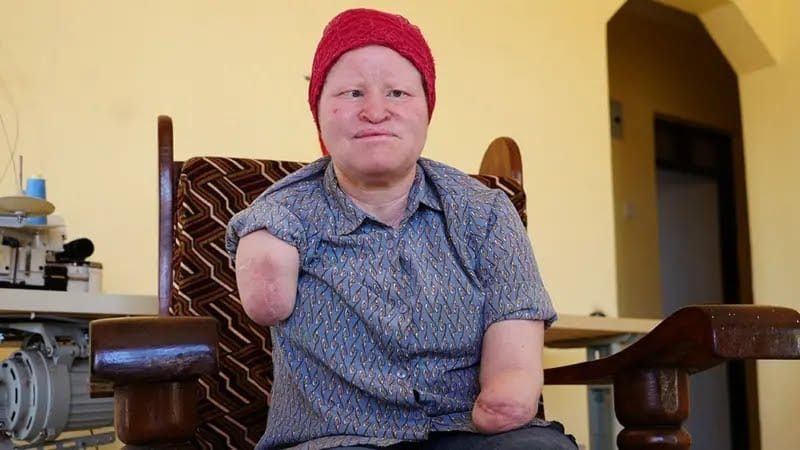For many Tanzanians, election season brings excitement and civic engagement. But for people with albinism, it revives deep fear.
Mariam Staford, a 42-year-old woman living in northern Tanzania, says every election brings back memories of violence. “The first thing that comes to me is fear,” she told the BBC, explaining that she avoids campaign rallies due to rising witchcraft-related killings that often spike during elections.
Albinism affects around 30,000 Tanzanians, a genetic condition marked by lack of skin pigment. However, widespread superstitions have made them targets of ritual killings. Believers falsely claim that their body parts bring wealth or political power, and such crimes tend to increase during campaign periods.
In 2008, as Tanzania prepared for local elections, Mariam was brutally attacked in her home in Kagera. Armed men cut off both her hands, leaving her for dead. She survived but lost her unborn child. “Even now, I sometimes dream of that night,” she says.
Rights group Under the Same Sun reports more than 200 attacks against people with albinism since 2008, including 79 murders and 100 mutilations. A monument in Sengerema stands in memory of those killed, including children like five-year-old Mariamu Emmanuel.
Despite government crackdowns and awareness campaigns, the problem persists. Earlier this year, a man narrowly survived an attack in Simuyu. President Samia Suluhu Hassan recently condemned harmful beliefs, urging citizens to reject superstitions linked to politics and witchcraft.
Local officials have engaged traditional healers to promote understanding and protection for people with albinism. “We advised them to be ambassadors of peace,” said district commissioner Senyi Ngaga.
Still, survivors remain cautious. The murder of two-year-old Asimwe Novath last year in Kagera served as a painful reminder that such threats continue.
As Tanzania heads to the polls on Wednesday, Mariam says she will not vote. “I will stay home,” she says quietly. “It’s safer that way.”



